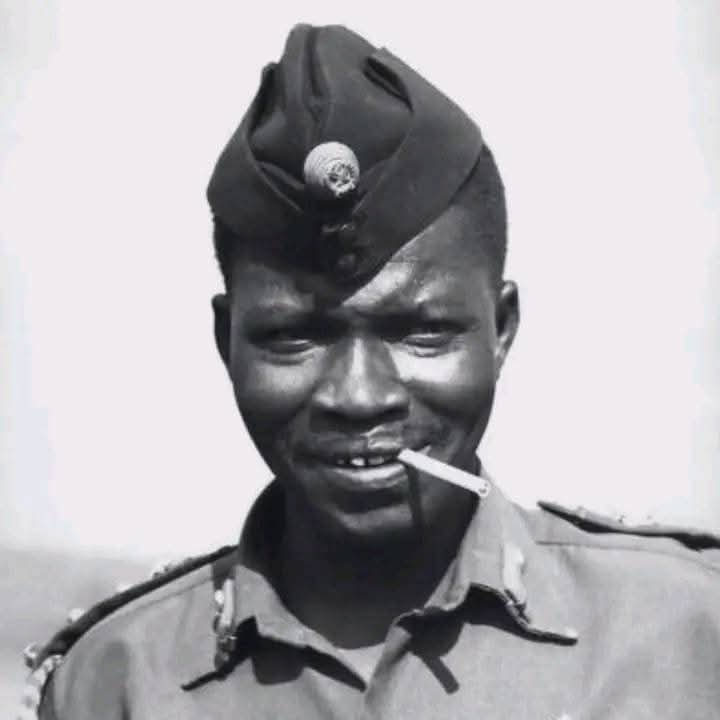Colonel Isaac Maliyamungu stands out as one of the most feared and controversial figures in Uganda’s post-independence history. A towering symbol of terror during the brutal regime of President Idi Amin (1971–1979), Maliyamungu’s name became synonymous with unchecked violence, cruelty, and blind loyalty. His life and actions offer a chilling glimpse into a period marked by political repression, paranoia, and mass murder.
Origins and Rise to Power
Isaac Maliyamungu was born in the western region of what is now the Democratic Republic of Congo and belonged to the Kakwa ethnic group — the same group as Idi Amin, to whom he was reportedly related. Migrating to Uganda, Maliyamungu began his working life as a gatekeeper at the Nyanza Textile Factory in Jinja. His humble beginnings, however, gave little hint of the powerful and notorious figure he would soon become.
In 1967, Maliyamungu joined the Uganda Army, allegedly recruited by Idi Amin, who was then the Deputy Commander of the Armed Forces. By 1970, he had become a corporal and served as a pay clerk in the Uganda Air Force at Entebbe. His loyalty to Amin, rather than his professional merit, paved the way for his rapid rise.
The 1971 Coup and Maliyamungu’s Ascent
Maliyamungu played a key role in the 1971 military coup that overthrew President Milton Obote and brought Idi Amin to power. Tasked with securing Entebbe Airport — a critical strategic location — Maliyamungu’s actions during the coup earned him Amin’s trust and favor. From this moment on, his transformation into one of the regime’s deadliest operatives began.
The Enforcer of a Blood-Soaked Regime
With Amin consolidating power, Maliyamungu emerged as one of his most trusted lieutenants. He was handed extraordinary powers to “discipline” the military and crush any opposition — real or imagined — among the civilian population. Under the guise of maintaining loyalty, Maliyamungu spearheaded purges, torture sessions, and public executions.
Eyewitness accounts describe horrific scenes: victims beaten with hammers, mutilated, or thrown into the Nile River. Maliyamungu was not only feared but often described as a man who enjoyed inflicting pain. Even Idi Amin — himself a brutal dictator — reportedly questioned Maliyamungu’s mental stability, yet relied on him to instill fear and ensure compliance throughout the country.
Failure at Entebbe and Decline
Despite his ruthlessness, Maliyamungu’s military competence was questionable. During the 1976 Israeli raid on Entebbe Airport — a daring rescue operation that freed hostages from a hijacked Air France plane — Maliyamungu ignored credible warnings and dismissed intelligence reports as “rubbish.” His failure to act contributed to the humiliation of Amin’s regime on the international stage and exposed serious weaknesses within Uganda’s security apparatus.
This blunder marked the beginning of his descent from prominence. As Amin’s paranoia deepened and Uganda’s military fortunes declined, Maliyamungu’s influence began to wane.
Exile and Death
When Tanzania, together with Ugandan exiles, invaded Uganda in 1978 to topple Amin, Maliyamungu was among those who fled the collapsing regime. He is believed to have first taken refuge in Libya and later in Sudan. Unlike Amin, who lived in exile until his death in 2003, Maliyamungu faded into obscurity and reportedly died in the early 1980s under mysterious circumstances.
Legacy of Fear
Colonel Isaac Maliyamungu’s legacy is a painful reminder of the darkest chapters in Uganda’s post-colonial history. A man who began life in obscurity rose to become a key architect of terror. He left behind no political philosophy, no development legacy, and no known remorse — only a trail of blood and broken families.
To this day, the name Maliyamungu evokes horror among survivors and witnesses of Amin’s regime. His story remains a cautionary tale of how power, when wielded without accountability or humanity, can destroy a nation from within.




